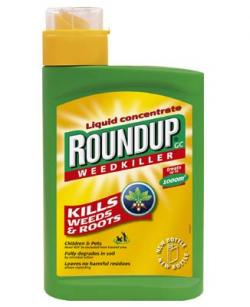
EU Shocks Pesticide Industry by Suggesting Glyphosate Herbicide Formulations Are Genotoxic
Despite the tragic and ‘corrupt’ nature of the EU Food Safety Authority (EFSA) and their report Thursday stating the ‘unlikely’ carcinogenicity of the most widely used active substance in herbicides – glyphosate – there is a very important admission in the report: “It is likely, therefore, that the genotoxic effects observed in some glyphosate-based formulations are related to the other constituents or “co-formulants”.
EFSA proposes that the toxicity of each pesticide formulation and in particular its genotoxic potential should be further considered and addressed by Member State authorities while they re-assess uses of glyphosate-based formulations in their own territories.
November 12, 2015 | Source: Sustainable Pulse | by
Despite the tragic and ‘corrupt’ nature of the EU Food Safety Authority (EFSA) and their report Thursday stating the ‘unlikely’ carcinogenicity of the most widely used active substance in herbicides – glyphosate – there is a very important admission in the report: “It is likely, therefore, that the genotoxic effects observed in some glyphosate-based formulations are related to the other constituents or “co-formulants”.
EFSA proposes that the toxicity of each pesticide formulation and in particular its genotoxic potential should be further considered and addressed by Member State authorities while they re-assess uses of glyphosate-based formulations in their own territories.
Sustainable Pulse comment: Glyphosate-based herbicides would not work well to kill weeds for farmers or gardeners without the addition of these extra additional chemicals known as adjuvants.
Independent scientists have long warned that pesticides are authorized for use based on medium- or long-term tests on laboratory animals carried out with a single chemical ingredient, which is known as the active ingredient because it is assumed to be responsible for giving the pesticide its pest- or weedkilling action.
However, the complete pesticide formulations as sold and used also contain additives (adjuvants), which increase the pest- or weedkilling activity of the pesticide. These complete formulations do not have to be tested in medium- and long-term tests – even though they are the substances to which farmers and citizens are exposed.
